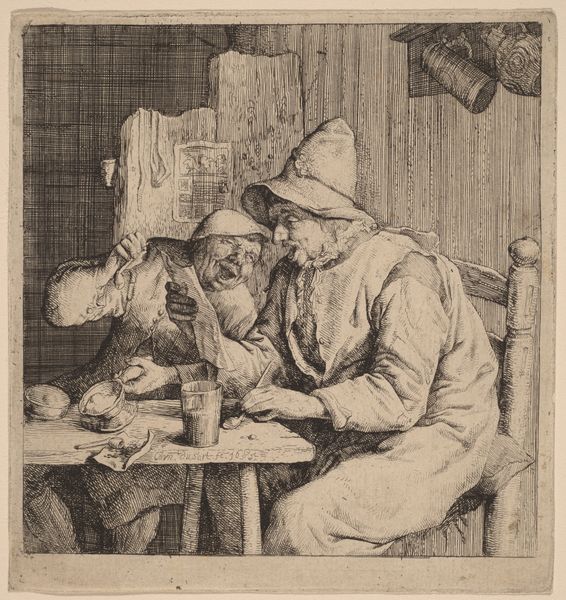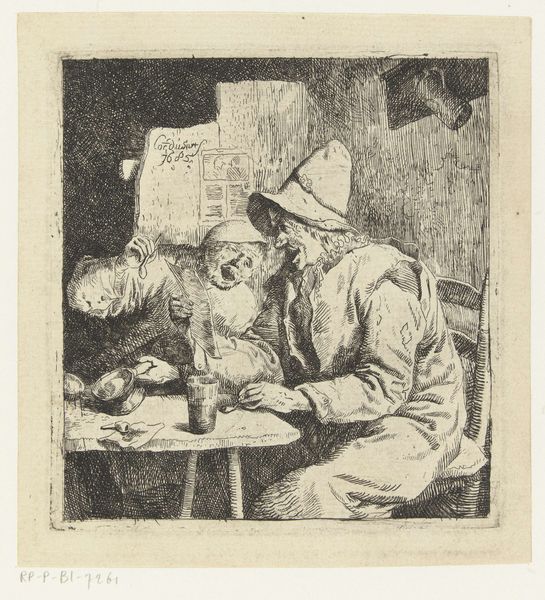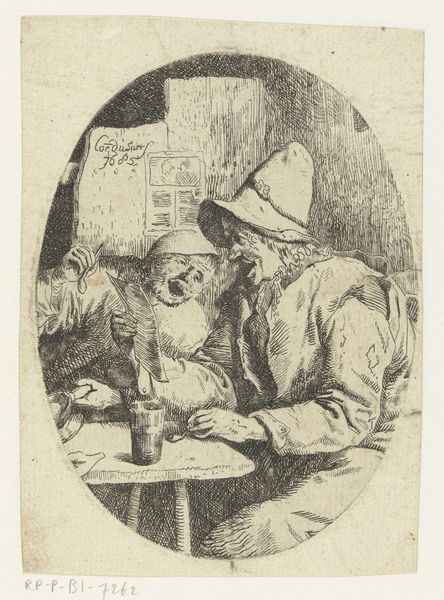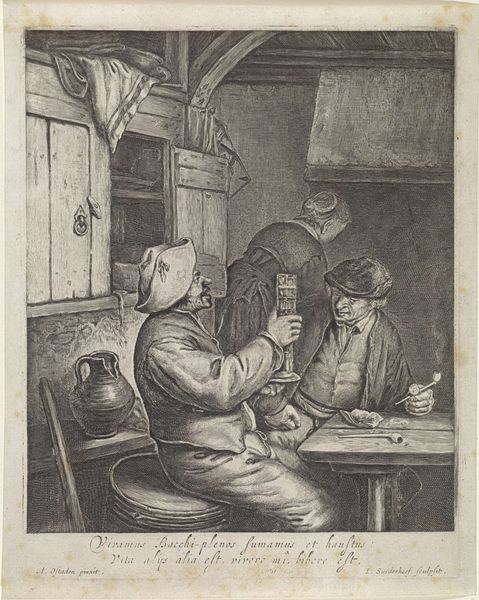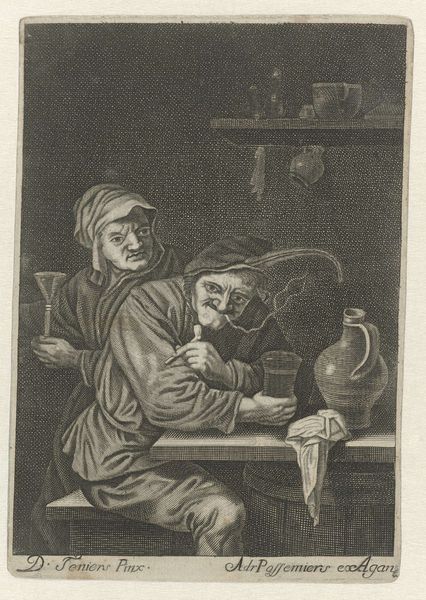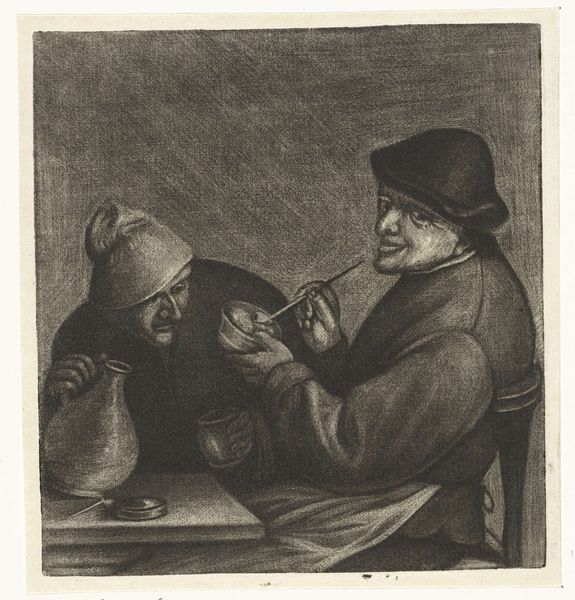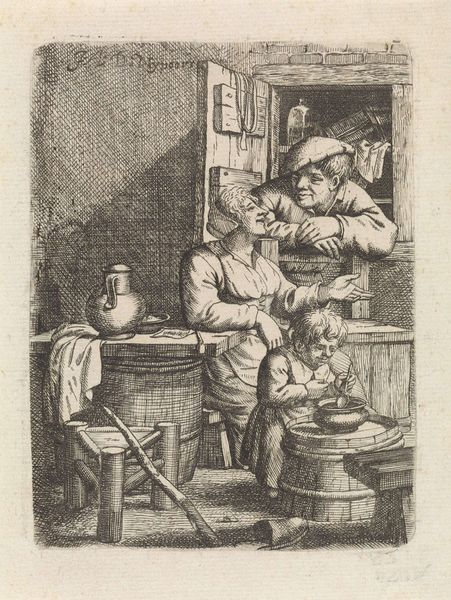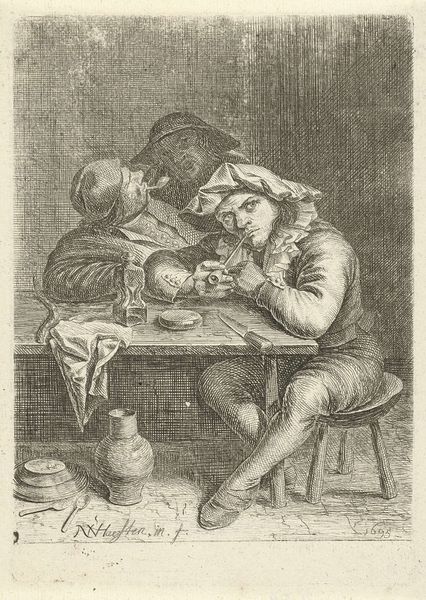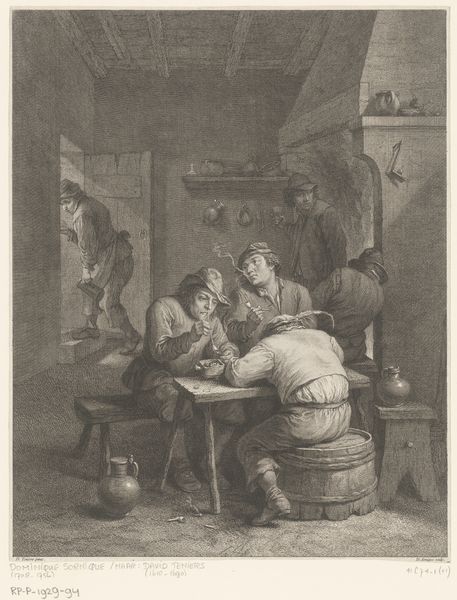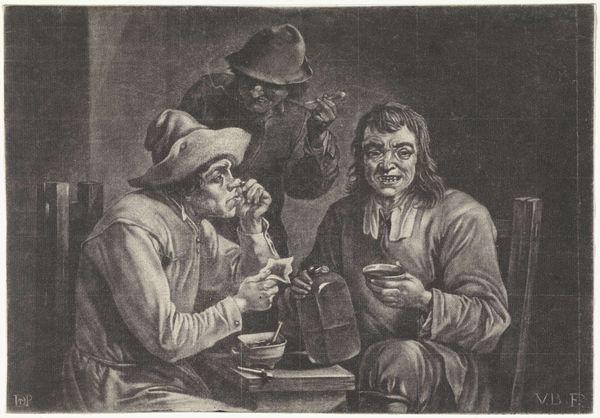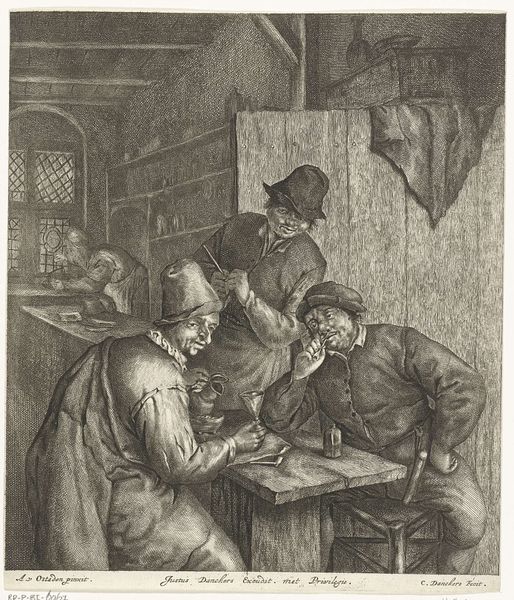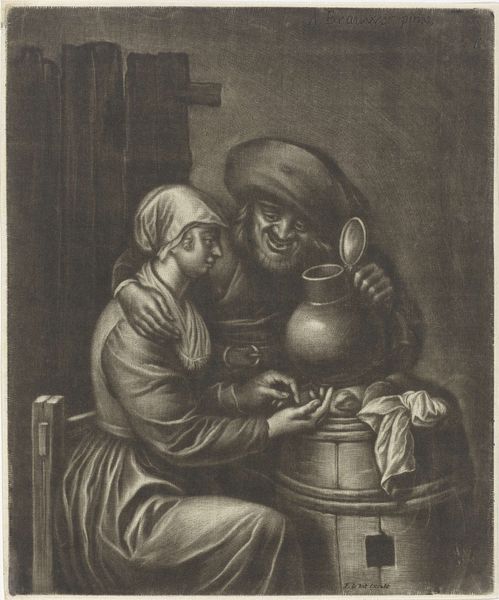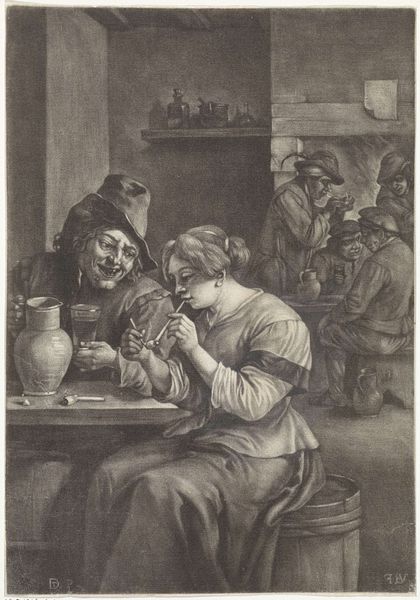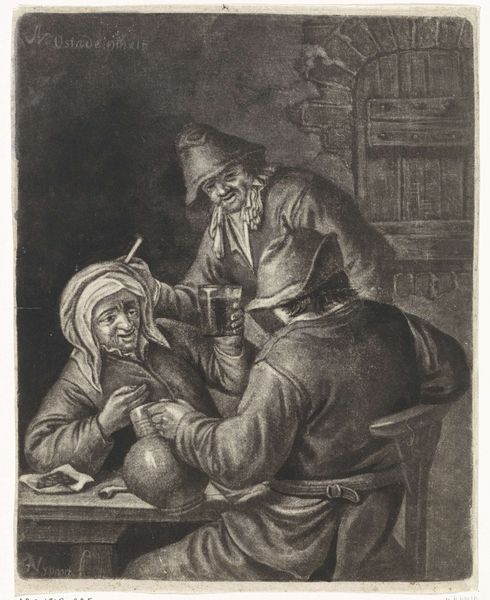
drawing, ink, pen
#
portrait
#
pencil drawn
#
drawing
#
toned paper
#
light pencil work
#
baroque
#
pencil sketch
#
charcoal drawing
#
personal sketchbook
#
ink
#
pencil drawing
#
sketchbook drawing
#
pen
#
portrait drawing
#
pencil work
#
genre-painting
Dimensions: height 153 mm, width 129 mm
Copyright: Rijks Museum: Open Domain
Curator: Look at the boisterous energy in this genre scene, "Gehoor" – or "Hearing"– a pen, ink and pencil drawing by Cornelis Dusart, dating to around 1670-1704, housed here at the Rijksmuseum. The artist perfectly captured a vibrant and slightly chaotic tableau. Editor: Indeed! There's a certain tension or, perhaps more accurately, heightened emotion radiating from the work. The body language is everything; the way figures are inclined towards each other, one man seemingly shouting. It reminds me of trying to hear through a din. Curator: That din, I think, is integral to understanding the drawing's socio-political function. We must consider the rise of the merchant class in the Netherlands during this period and the concurrent rise in taverns and alehouses as central public spaces for them. Spaces exclusively for white men only. Editor: So, these illustrations weren't just documentation. Dusart positions "Gehoor", and maybe we should consider the piece's relationship to its sister artworks, "Taste", "Sight", "Smell", and "Touch", as commentary, on the culture and commerce and maybe Dutch excess during its Golden Age? Curator: Exactly! The sensory engagement evident, for instance, in their theatrical posture, gestures towards social norms or perhaps challenges to decorum and notions of bourgeois sensibility. Editor: Right, and zooming in on the drawing's texture, the layered pencil strokes, and the shadowed inking of details… the table’s disarray – the coins and tankards… These add such incredible depth to our reading of character in art history. Are these commoners in conversation, debate, a heated exchange? Or men behaving poorly as they drink and game? The men in question – their dress signals their membership to the Guild, yet we can never truly escape their own lived experiences which remain absent from this tableau, despite its seeming vivacity. Curator: I agree. It pushes us to think beyond surface impressions, engaging critically with historical power dynamics and asking what is included, or omitted. This allows to be challenged by history! Editor: For sure, Cornelis Dusart allows viewers a potent tableau that will forever endure in their 'sight' forever influencing those after the initial observer.
Comments
No comments
Be the first to comment and join the conversation on the ultimate creative platform.
